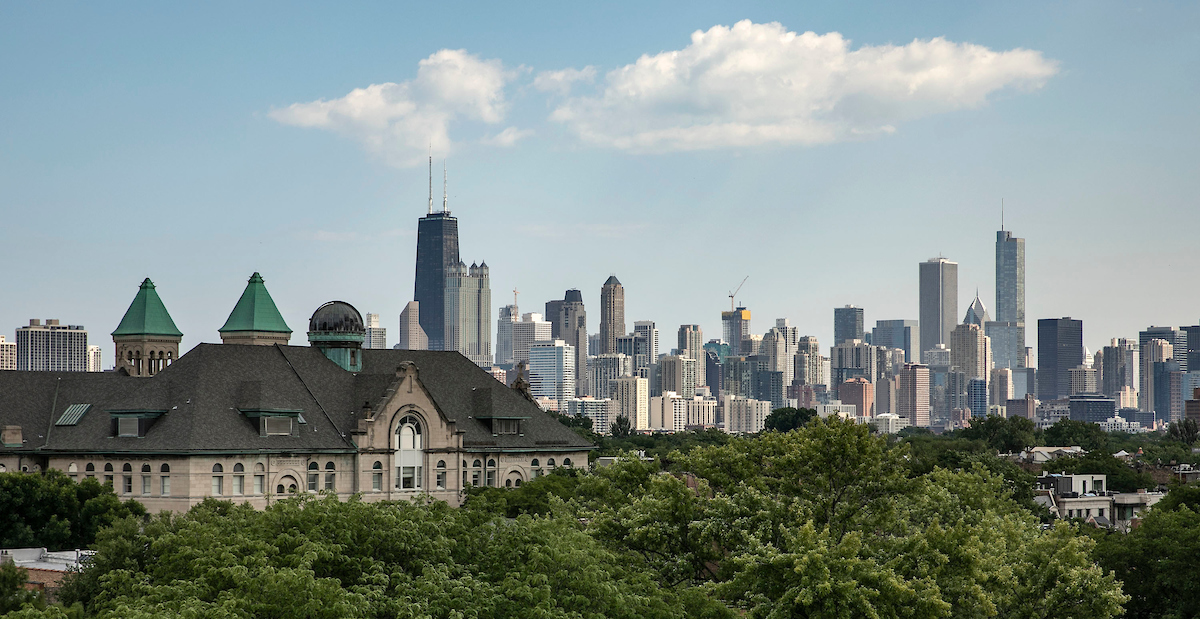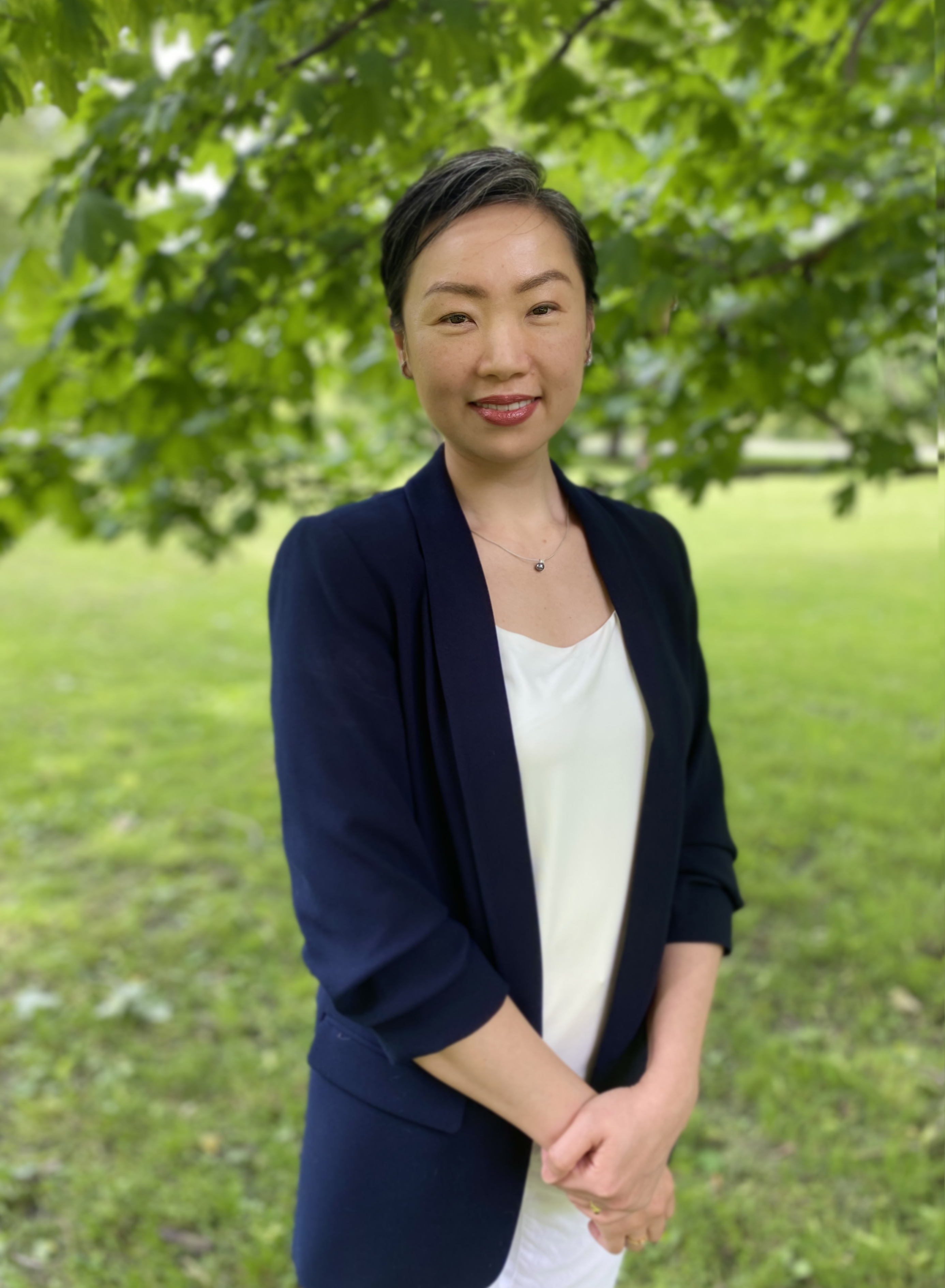 (DePaul University/Jamie Moncrief)
(DePaul University/Jamie Moncrief)
Chi-Jang Yin, area head of photography and media art, and associate professor in The Art School at DePaul, will use her well-honed expertise in the field of diversity to advance the university's equity and inclusion goals as the 2020-21 Presidential Faculty Fellow.
 Chi-Jang Yin is DePaul’s 2020-21 Presidential Faculty Fellow. (Image courtesy of Chi-Jang Yin)
Chi-Jang Yin is DePaul’s 2020-21 Presidential Faculty Fellow. (Image courtesy of Chi-Jang Yin)
“Yin is an award-winning filmmaker whose academic work in digital media and telling the narratives of marginalized communities is quite powerful," says Elizabeth Ortiz, vice president for Institutional Diversity and Equity.
Yin currently has two digital humanities projects underway. The first is a documentary film and interactive website focused on the juxtaposition of memory, the past and present recollections of the Hiroshima atomic bombing of 1945. The second is assisting pediatricians who help children and families seeking asylum in the U.S. It is a collaboration with the Midwest Human Rights Consortium and the Refugee and Immigrant Child Health Initiative.
“Chi-Jang is a committed faculty member who has a proven track record of diversity, equity and inclusion experience," Ortiz says. “She is a trained diversity, equity and inclusion facilitator and has a deep commitment to equity in all aspects of education, including cultural competency, teaching modalities, campus climate and training."
Yin says diversity, equity and inclusion, referred to as DEI, have become priorities in her approach to social change and organizational transformation.
“My intention is to collaborate with DEI personnel to advance initiatives in research projects and inclusive curriculums, and develop mutually supportive and equitable policies," she says.
Ortiz describes the fellows program as an opportunity to bring substantive understanding and intellectual rigor to discussions around strategic priorities—including DEI—and perform research and supplemental activities under the auspices of the Office of the President. Yin and Ortiz are envisioning how Yin's project will take shape.
“Chi-Jang has extraordinary multicultural competencies gained from her lived experience, her intellectual pursuits and her creative channels," says DePaul President A. Gabriel Esteban. “I'm delighted she is willing to share her deep DEI experience with the university community."
After earning the fellowship, Yin spoke in-depth with Newsline:
Can you tell us about your personal and professional background?
I was born in mainland China in the middle of the Chinese Cultural Revolution, a time when academics, artists and critical thinkers were subjugated to horrible levels of discrimination and violence. My mother, an artist from an aristocratic family, led us on a journey out of China, first to Hong Kong - then under British Control - then to Taiwan and finally to Canada.
I was first trained in traditional Chinese painting, but when I arrived in North America, my interests began to shift to the avant-garde and more critical forms of artistic analysis.
My digital humanities projects often question the use and misuse of media to alternately shape bias and understanding in a global context. My research methodology focuses on inclusivity, information literacy, data visualization and how digitalization of the arts and humanities can be a form of advocacy and social justice.
My passion for experimental cinema, observational documentary, cinéma vérité, ethnographic films and digital photography informs a diverse body of award-winning work, which has been recognized internationally in galleries, exhibitions and film festivals. The topics of my documentary films include migrant workers, immigrants and cultural conflicts among economic classes. My latest documentary film, “Lighthouse," explored migrant living conditions in factory towns and was featured at the Amsterdam International Documentary Film Festival.
You have a strong background in diversity and inclusion. Why did you pursue this expertise?
Engaging in differences and complementary experiences with respect and empathy is a part of my self-discovery and creative process. Over the years, I have collaborated with artists, attorneys, psychologists, political scientists, and healthcare professionals in building DEI initiatives. Collaborating with these professionals and organizations has broadened my perspective, enriched my creative practice, and brought great meaning to my life.
How do you envision advancing DePaul's diversity and inclusion goals?
Research suggests awareness of the possibility of blind spots and aversive bias during the hiring and promotional process, as well as creating an inclusive curriculum, benefits the performance of the institution and students' learning experience. The challenges are how to broaden the talent pool, build and maintain a diverse workforce and help people to thrive, maximize the advantage of complementary perspectives and skill sets, and encourage equitable access to promotion and high-quality education. I am excited to contribute to continuing equity-related efforts that include the recruitment, retention, and success of our faculty, staff and students.